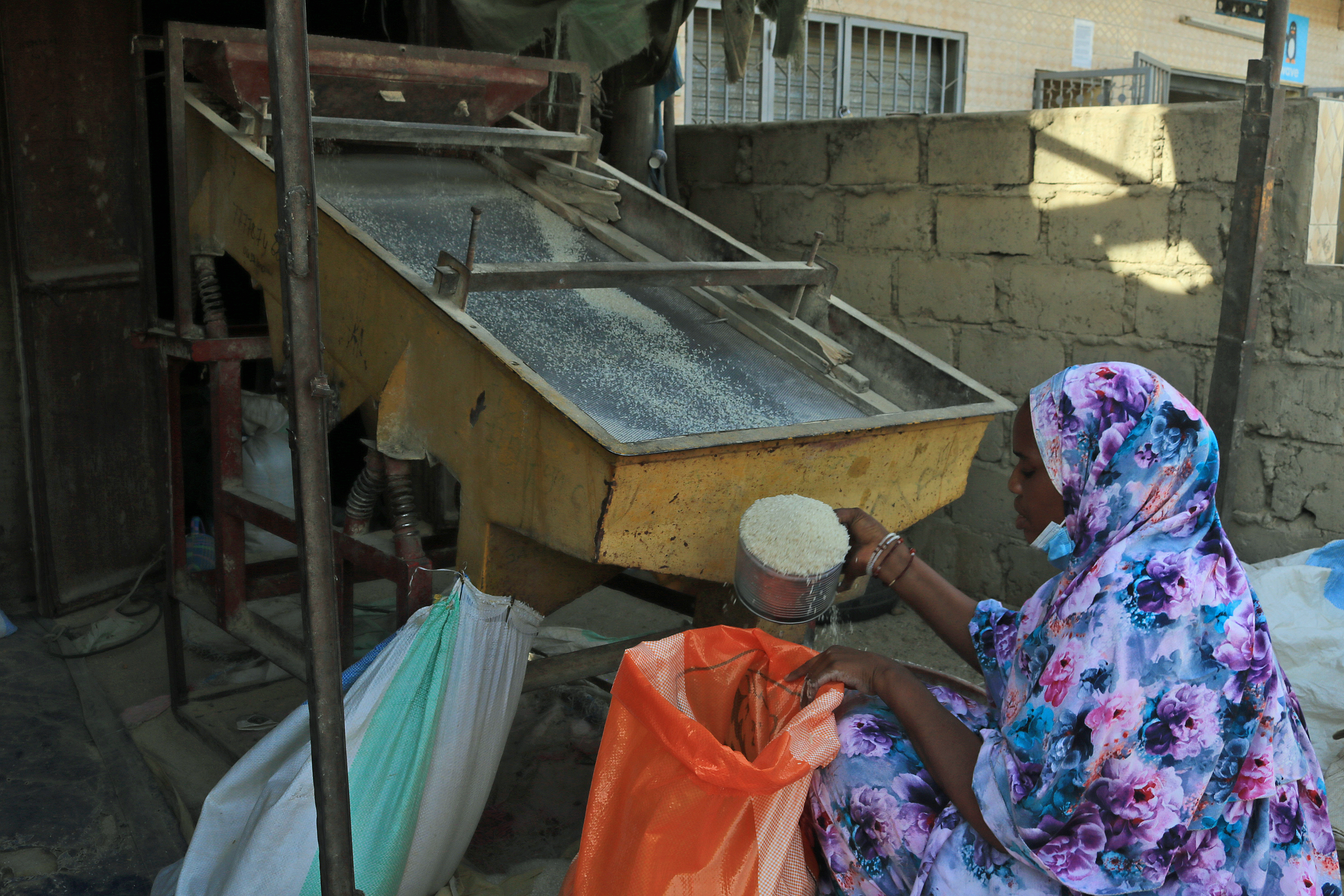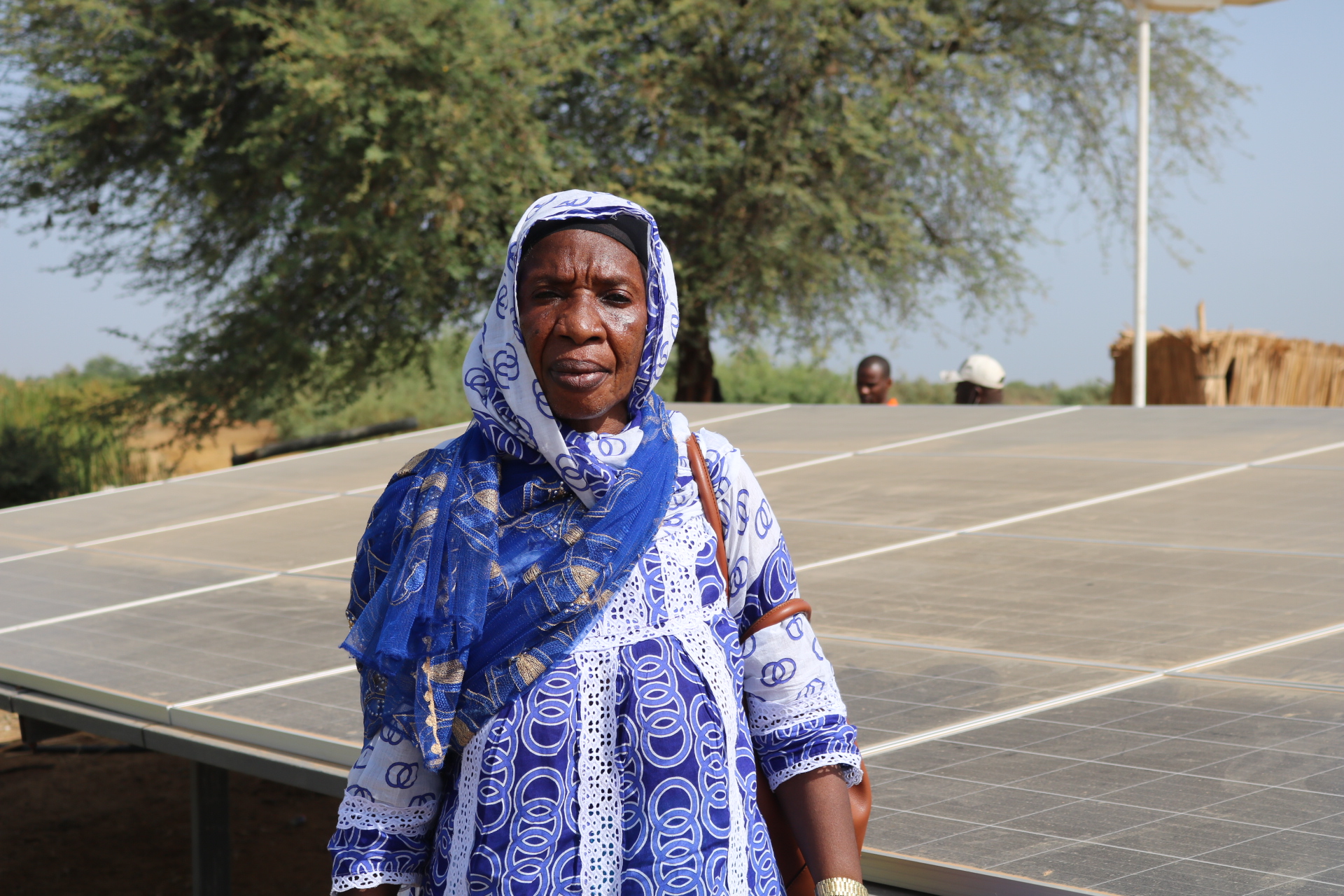How solar technologies could lead Senegal towards self-sufficiency in rice production
Improving the productivity of Senegalese rice farmers and processors through solar irrigation and rice processing technologies is a key objective of Energy 4 Impact and GIZ’s Water and Energy for Food Program/ Programme Eau et Energie pour l’Alimentation (WE4F/PEEPA). By establishing an ecosystem of private and public sector players, this 15-month project will demonstrate the viability of business and financial models that can support the growth of the rice paddy sector, improve smallholder farmer livelihoods and bolster the country’s food security.
Although Senegal is one of the largest consumers of rice in West Africa, it relies on international markets to import 60% of its annual rice consumption. The local rice production is characterised by unmodernised smallholder farming systems that yield low quality rice and generate low profits for farmers who spend about 73% of their turnover in inputs (seed, fertilisers and herbicides) and irrigation (fuel and maintenance of diesel pumps).
One of Senegal’s top priorities is to improve its food security and become self-sufficient in rice production. This can be achieved by increasing the quantity and the quality of the produce and decreasing losses. Modernising the rice sector through the introduction of solar technologies and improved agronomic practices could be a game changer for the country’s high-potential rice cultivation areas such as the one along the Senegal River Valley.
A preliminary study of the paddy rice sector in Senegal’s rice-growing regions has enabled Energy 4 Impact to identify the needs of farmers and processors. By looking at their access to water, farming equipment, inputs, financing, market, and skills, it was able to formulate tailored solutions.
GIE Jeuf-Jeul is a cooperative of 160 women involved in the production of rice in the town of Ross Béthio in the Senegal river valley. To cultivate their 18-ha rice paddy, the group spends 540,000 Senegalese Francs (US $1,000) per production cycle (3-4 months) to rent a diesel-powered water pump and 1,505,500 Senegalese Francs (US $ 2,800) for the fuel.
We normally face charges of over 2 million Francs just for equipment rental and fuel, a figure that doesn’t include the transport costs or the cost of the upkeep and maintenance of the equipment which easily adds up to an extra 100,000 FCFA per season. Going to buy fuel also takes up time which lessens our productivity too,
says Ndeye Gaye, president of GIE Jeuf-Jeul.
The low profitability is a huge demotivating factor for many small rice producers who have gradually been abandoning their paddies. With an average of 9.8 hours of sunshine per day, small-scale solar irrigation systems are an ideal solution for cooperatives such as the GIE Jeuf-Jeul who work on paddy fields between 5 ha and 20 ha and need to cut fuel and maintenance costs.
Similarly, most of the commercial rice processing, which consists of removing the hulls and bran from paddy grains to produce polished rice, is done by small-scale enterprises using old diesel-powered equipment. Prone to frequent breakdowns, these systems require a lot of maintenance and are a constant threat to the profitability of their business. Modern, solar-powered technologies can significantly improve the quality and technical performance of the husking, drying and packaging process.
Solar solutions such as hulling machines, cereal threshers, solar pumps, and solar mills, already exist in Senegal but they have not been tried and tested in the rice value-chain and their uptake amongst small-scale processors remains low.
GIE Sope Nabi is another women-run cooperative, engaged in the production, husking and sales of rice in Gandiaye in the Senegal River Valley. The cooperative provides husking services for the nearby villages. When Energy 4 Impact met them, their hulling activity had stalled due to the malfunctioning of the diesel engine. They are now in the process of acquiring a solar-powered hulling system that meets their needs.
Anna Diop, leader of the GIE explains:
We very often experience breakdowns in our hulling unit, or sometimes we ran out of fuel in the middle of the husking cycle. This has hindered the development of our cooperative for a long time. The acquisition of a solar-powered huller will be an opportunity to relaunch our business and make our EIG profitable.
The current level of adoption of solar technologies in the rice value chain in Senegal is feeble. This is due to several factors, including the high upfront cost of the technologies, the lack of specialised financing products and mechanisms, and the limited knowledge of the benefits and cost-effectiveness of these modern technologies amongst rice producers and processors.
Despite the tax exemption on solar equipment (solar panels, inverter, controller, pump) introduced by the government in May 2020, solar irrigation systems are still out of reach for small farmers, who are unable to raise the necessary funds without some financial support. At the same time, awareness of the advantages and long-term cost effectiveness of these technologies is very low. Few farmers know for example that solar-powered irrigation systems can reduce operating costs by 40 to 50% per hectare and increase the income of farmers by at least 15% per hectare.
With this in mind, Energy 4 Impact has been running awareness events across some of the major rice producing areas in the country to provide detailed information of the benefits of solar technologies, and the available equipment and financial mechanisms. Over the months of April and May 2021, around 130 representatives of rice farming and processing cooperatives attended the events and many more were reached through radio, press and social media campaigns.
These events are also an opportunity to establish links between suppliers of solar appliances, micro-finance institution and potential customers. In fact, Energy 4 Impact is working in parallel with several financial institutions that traditionally provide credit to farmers for inputs such as seed and fertiliser, in order to diversify their credit offer to include credit facilities for solar products.
At the same time, we are exploring the possibility of collaborating with processing equipment suppliers to develop suppliers’ credits facilities, which would enable farmers to pay back the equipment over several months, according to their production cycles,
say Abdoulaye Dieng, Energy 4 Impact’s Capital Access Officer.
“Our past experiences have shown that off-grid small entrepreneurs and farmers, considered a high credit risk by most financial institutions, can successfully repay their loans and improve their yields with technical and management assistance”, says Abdoulaye Dieng.
In collaboration with the Ministry of Agriculture Directions Régionales de Développement Rural (DRD) and the Société de Développement Agricole et Industriel du Sénégal (SODAGRI), 30 small farmers have already been identified and are receiving support to acquire solar pumping systems suitable for areas varying from 3 to 5 ha, and solar dehullers with a capacity of one ton per day.
The selected rice farmers and processors are also being trained in business and cashflow management, equipment maintenance, agronomy and sustainable horticultural practices, and efficient post-harvest management. Ongoing monitoring will enable Energy 4 Impact to collect economic and technical data, assess the feasibility and viability of the model and finetune the type and level of support provided to the farmers.


